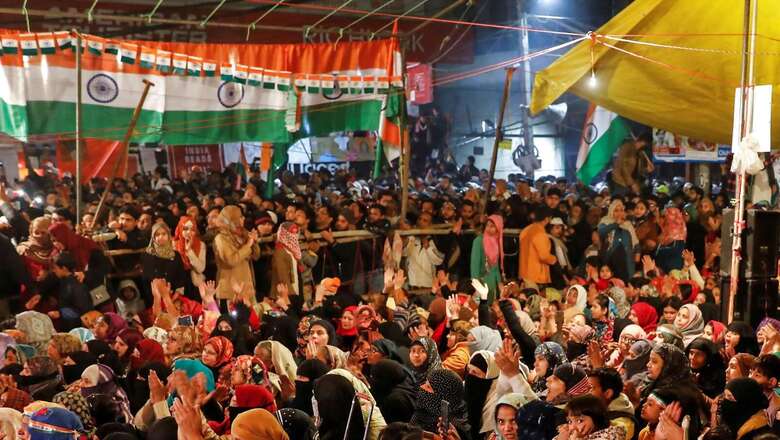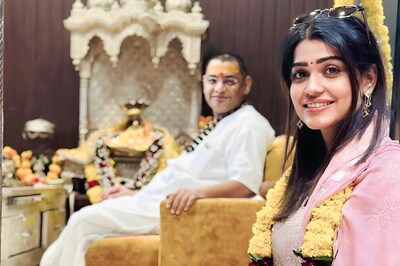
views
The Delhi Police Tuesday told the Delhi High Court that the protests at Shaheen Bagh here in the backdrop of the Citizenship Amendment Act (CAA) were not organic or an independent movement. Popular Front of India (PFI) and Social Democratic Party of India (SDPI) was behind Shaheen Bagh and the locals did not support the ongoing protests at various places, police said.
It said people were transferred to these sites by certain persons who were trying to build a narrative. The submission was made by the police while opposing the bail plea of former JNU student Umar Khalid in connection with a UAPA case related to the alleged conspiracy behind the riots here in February 2020.
What Shaheen Bagh was made out, it was shown as an organic protest site. It was not. It was not a situation where suddenly people came… It was a created protest site, Special Public Prosecutor Amit Prasad told a bench of Justices Siddharth Mridul and Rajnish Bhatnagar. Dadis (grandmothers) of Shaheen Bagh were not behind this (the protest). There is an alliance (of many organisations and persons) which is behind Shaheen Bagh. Shaheen bagh was not an independent movement, Prasad read out portions of chat messages exchanged among various persons allegedly involved in organising the protest sites, including those named as accused, and said that these persons mobilised crowds to be present at such places and extended support to them.
PFI (Popular Front of India) and SDPI (Social Democratic Party of India) were behind Shaheen Bagh… When I pointed out on the first day (of my arguments), there were top conspirators. Top conspirators had visible and invisible elements. One of the invisible elements was PFI.. he said. Locals did not support. There were people who were transported to these sites and I can show from the chat how people were transferred They are hands-on on what is happening in Shaheen Bagh, the SPP added.
Khalid, Sharjeel Imam, and several others have been booked under the anti-terror law Unlawful Activities (Prevention) Act (UAPA) and provisions of the Indian Penal Code for allegedly being the “masterminds” of the February 2020 riots, which had left 53 people dead and over 700 injured. The violence erupted during the protests against the Citizenship Amendment Act (CAA) and the National Register of Citizens (NRC).
Earlier this month, the police had argued that riots happened in two phases, first in 2019 and then in February 2020, and that misinformation was spread during the riots apart from blockade of roads causes, attacks on police personnel, and paramilitary forces, violence in non-Muslim areas, etc. It was contended that the speeches delivered by various accused in the case have one common factor — the essence was to create a sense of fear in the Muslim population.
While referring to certain speeches made by Khalid and other accused, the SPP had said, when you talk about Babri Masjid or triple talaq, they relate to a religion. But when you talk about Kashmir, it is not an issue of religion, it is an issue of national integration. He had contended that these accused were connected with each other at the relevant time as a part of the conspiracy for rioting.
Khalid was arrested on September 13, 2020, and has been in custody since then. Besides Khalid, activist Khalid Saifi, JNU students Natasha Narwal and Devangana Kalita, Jamia Coordination Committee members Safoora Zargar, former AAP councillor Tahir Hussain and several others have also been booked under the stringent law in the case.
Earlier, Khalid’s counsel had said that mere membership of a WhatsApp group cannot make him criminally liable when nothing objectionable has been attributed to him. He had said out of five WhatsApp groups cited by the prosecution, he was a member of two groups in which also he remained silent and only posted four messages in one of the groups.
The court listed the case for further hearing on August 25.
Read the Latest News and Breaking News here




















Comments
0 comment